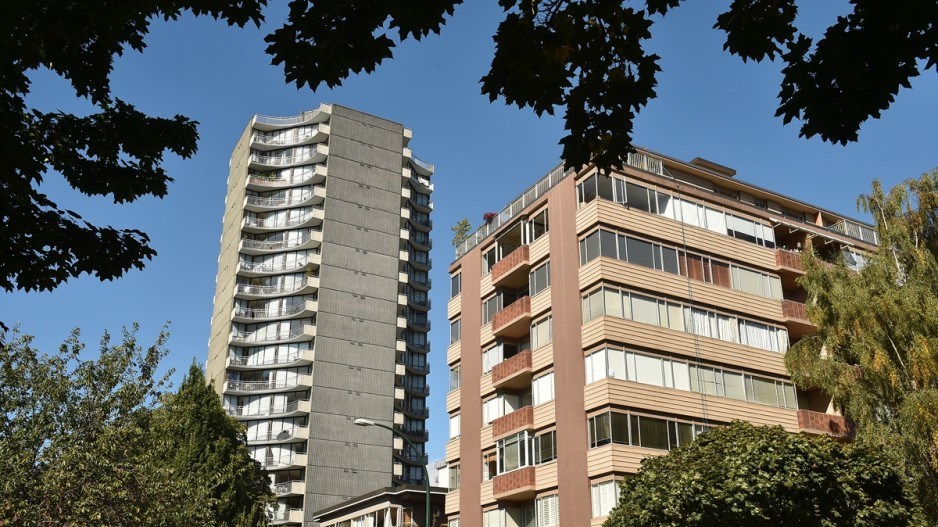It may take years before British Columbia’s “unhealthy” strata insurance market normalizes, according to the BC Financial Services Authority (BCFSA).
In its final report to government, the BCFSA cautioned that there is no simple fix for a market that has seen premiums and deductibles jump by double- and triple-digit percentage increases in a relatively short period of time.
“What has been occurring in this province is not typical,” the report notes.
“It will take time to bring the market back to a healthy state, possibly years.”
A number of factors have contributed to a dramatic increase in the cost of insurance in parts of B.C. – an issue that has left some strata corporations scrambling to secure and afford coverage.
“We found that there was a bit of a perfect storm of both local and global events, which has really created this unhealthy marketplace,” explained Frank Chong, vice-president and deputy superintendent, regulation, with the BCFSA.
“There are actions that are going to need to be taken by all stakeholders to be able to bring everything back to a healthy state, and it will take some time to do so. There is a new norm for prices, and premiums are stabilizing at existing levels, but price stability, not reduction, is really the realistic short-term goal here.”
Part of the problem is cyclical. After more than a decade under soft market conditions – characterized by increased competition, ongoing profits for insurers and flat or decreasing premiums – markets began to harden in late 2018.
In a hard market, insurers struggle with profitability. Last year, BIV reported that a number of insurers exited Greater Vancouver’s residential strata insurance market, which reduced competition in the region. Fewer remaining players were faced with a greater number of buildings that needed coverage, which concentrated their risk. Prices increased.
In addition to this market shift, the BCFSA’s final report identified four foundational issues that have significantly contributed to B.C.’s condo insurance crisis.
These include rising claims costs. In order for premiums to come down, those costs – which come from claims for things such as water damage – need to show sustained improvement, said Chong.
Supply needs to be increased to meet existing and future coverage demand, and concentration risk – which bears costs for insurers – ought to be considered.
The report also suggests that a better flow of information between stakeholders, and greater education for strata councils and owners, could help address knowledge gaps and communication issues that can complicate the strata insurance process.
Regulatory changes to date
Following the BCFSA’s interim report, the provincial government last year announced a number of changes to address the issue of expensive residential strata insurance.
These included banning the practice of insurers paying referral fees to strata property managers, and requiring insurance companies to give strata corporations more notice around material changes to their coverage.
Also among the changes was an end to best terms pricing, where all insurers involved in a strata property subscription policy receive the rates and terms established by the best quote made among them. This practice, which ended last year, meant that insurance prices were being set by the highest bidder.
While the end to best terms pricing will help alleviate premium increases on some properties, the BCFSA says the change will not bring overall premiums down.
“The key factor is claims costs. For a reduction in premiums and deductibles to occur, claim costs needs to improve and demonstrate a sustained improvement over time,” the report states.




